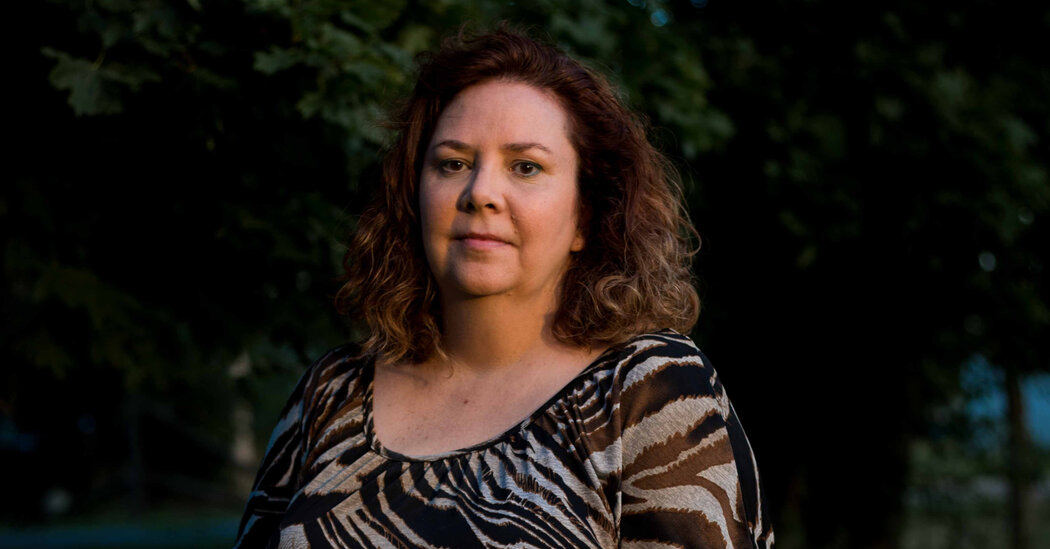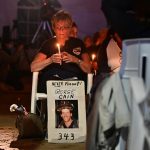
For many skeptics, resistance tends to be based not on formal teachings from an established faith leader, but an ad hoc blend of online conspiracies and misinformation, conservative media and conversations with like-minded friends and family members.
“People who have already made up their minds are now looking for ways to continue to exempt themselves from the Covid vaccine,” said Joshua Williams, a pediatrician and assistant professor of pediatrics at the University of Colorado.
Mr. Williams’s prepandemic research into school immunization requirements suggests that most objections described as religious to vaccines are really a matter of personal — and secular — beliefs. After the state of Vermont removed its vaccine exemption for nonreligious personal beliefs in 2016, the proportion of kindergarten students with a religious exemption shot up from 0.5 percent to 3.7 percent, suggesting that most parents who took advantage of religious exemptions did so only when others were not available.
Apple, Microsoft, Tyson Foods and Disney are among the major private employers who announced this summer that they would require at least some of their workers to be vaccinated. Since the Food and Drug Administration granted full approval to Pfizer-BioNTech’s coronavirus vaccine on Aug. 23, others are quickly following.
As mandates take effect and the Delta variant surges in many regions of the country, some former skeptics are submitting to shots. The Biden administration said that roughly 14 million people in the United States received their first shot in August, about 4 million more than in July.
Understand Vaccine and Mask Mandates in the U.S.
-
- Vaccine rules. On Aug. 23, the Food and Drug Administration granted full approval to Pfizer-BioNTech’s coronavirus vaccine for people 16 and up, paving the way for an increase in mandates in both the public and private sectors. Private companies have been increasingly mandating vaccines for employees. Such mandates are legally allowed and have been upheld in court challenges.
- Mask rules. The Centers for Disease Control and Prevention in July recommended that all Americans, regardless of vaccination status, wear masks in indoor public places within areas experiencing outbreaks, a reversal of the guidance it offered in May. See where the C.D.C. guidance would apply, and where states have instituted their own mask policies. The battle over masks has become contentious in some states, with some local leaders defying state bans.
- College and universities. More than 400 colleges and universities are requiring students to be vaccinated against Covid-19. Almost all are in states that voted for President Biden.
- Schools. Both California and New York City have introduced vaccine mandates for education staff. A survey released in August found that many American parents of school-age children are opposed to mandated vaccines for students, but were more supportive of mask mandates for students, teachers and staff members who do not have their shots.
- Hospitals and medical centers. Many hospitals and major health systems are requiring employees to get a Covid-19 vaccine, citing rising caseloads fueled by the Delta variant and stubbornly low vaccination rates in their communities, even within their work force.
- New York City. Proof of vaccination is required of workers and customers for indoor dining, gyms, performances and other indoor situations, although enforcement does not begin until Sept. 13. Teachers and other education workers in the city’s vast school system will need to have at least one vaccine dose by Sept. 27, without the option of weekly testing. City hospital workers must also get a vaccine or be subjected to weekly testing. Similar rules are in place for New York State employees.
- At the federal level. The Pentagon announced that it would seek to make coronavirus vaccinations mandatory for the country’s 1.3 million active-duty troops “no later” than the middle of September. President Biden announced that all civilian federal employees would have to be vaccinated against the coronavirus or submit to regular testing, social distancing, mask requirements and restrictions on most travel.
But among others, desperation to avoid the vaccines is rising. In Paducah, Ky., Drew Kirk and his wife, who he asked not to be named, were strategizing about how to use a religious exemption at the hospital she works for, which recently announced a vaccine mandate for employees.
“There are many reasons we don’t want to take it, and faith is one,” Mr. Kirk said. Their concerns include a perception that the vaccine was rushed, problems with what they have read about the vaccine’s remote connection to abortion and similarities to the biblical “mark of the beast,” a symbol associated with the Antichrist. They also are not overly worried about the virus itself.







